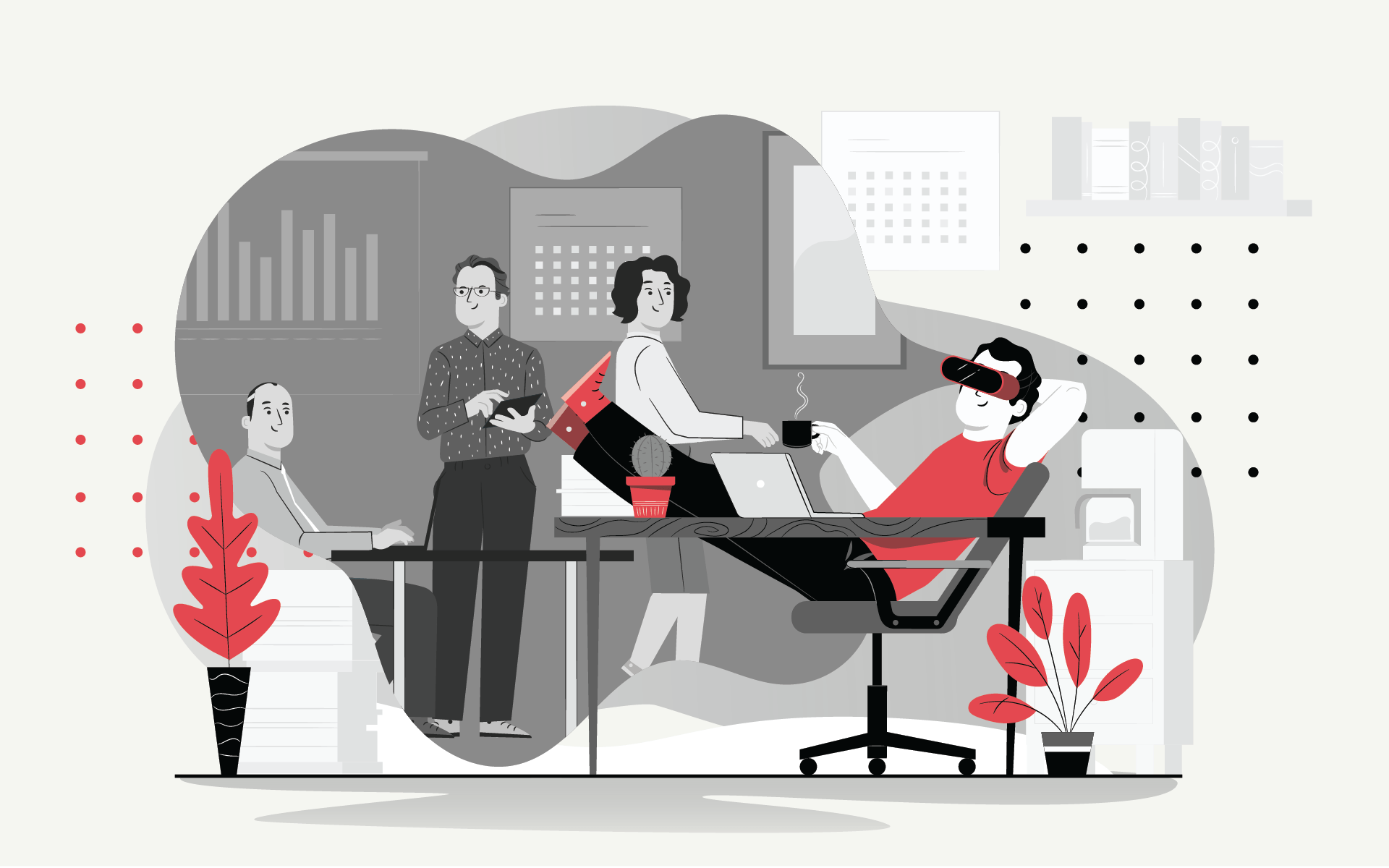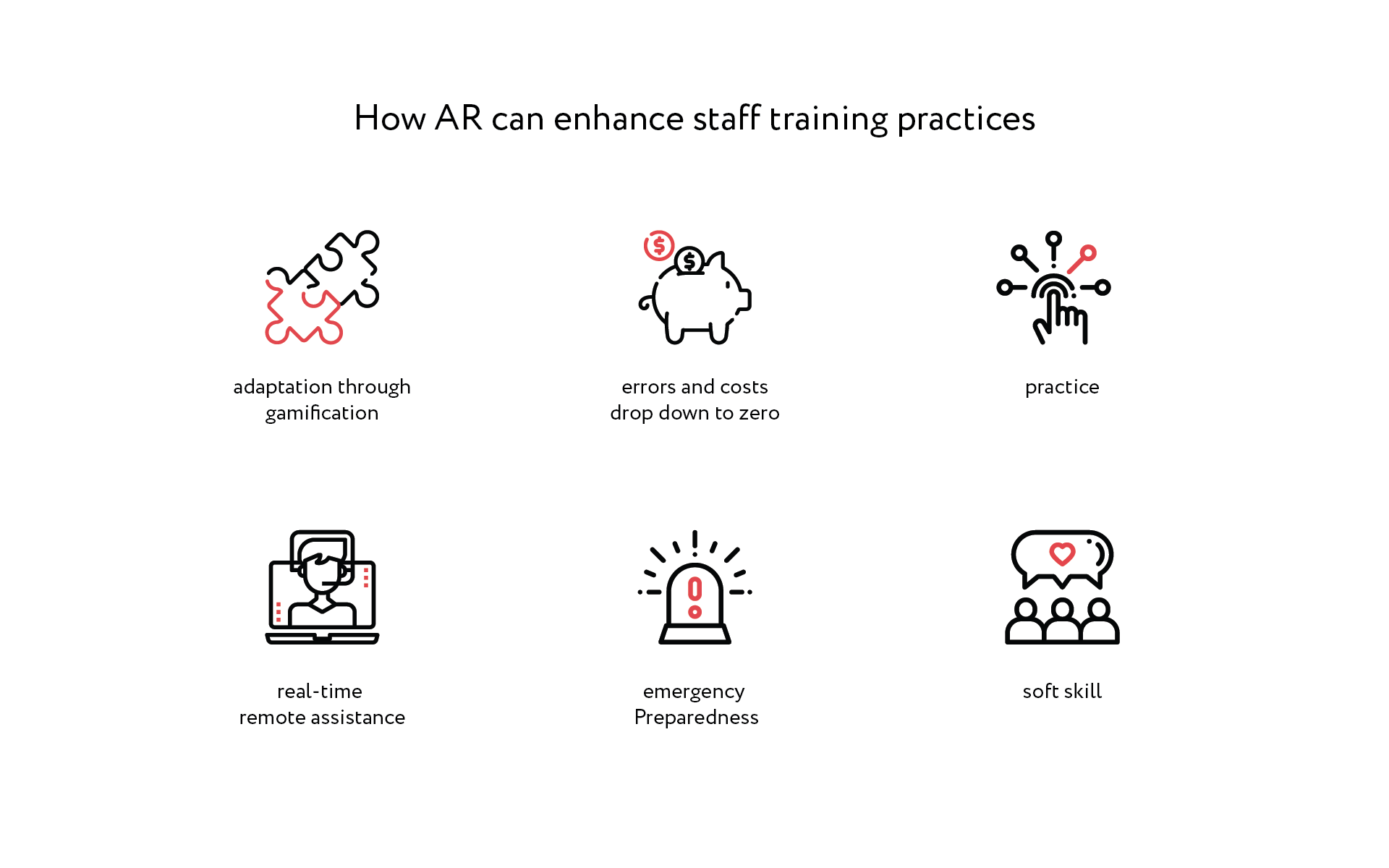 BACK TO ALL
BACK TO ALL

The success of a company largely depends not just on its technology and equipment, but also on the qualifications of the employees. Personnel is the company's main resource. Any given technology or equipment are unlikely to function properly without the right management. Every year millions of dollars are spent on hiring specialists, training and immersing them in the company's processes.
Not only can a lack of training or its poor quality lead to increased production costs. What could be the solution?
Introducing a High-Tech Solution
Augmented reality has quickly become part of our lives. What do you picture when you hear about AR and VR? Probably specialized clubs where you can put on virtual reality glasses, transform yourself into a character and get a different experience, lasting for a short period of time. However, entertainment is not the only industry which can benefit from these two fantastic technologies.
What if instead of studying slides, booklets and brochures, reading hypothetical scenarios and mindlessly memorizing data, employees could learn from three-dimensional visualizations – with regular updates of the information related to their future tasks? Sounds appealing, doesn't it?
Augmented reality apps can easily become employee training simulators. Using their tablets or phones, special glasses or other AR-enabled devices, employees can access data on their screens. According to the survey, the number of millennials in the workforce has reached 50 percent. And millennials are those who grew up alongside the development of technology: naturally, they can’t picture their life without the latest tech.
How AR can enhance staff training practices

Adaptation through gamification.
Augmented reality helps new employees familiarize themselves with the processes of your company faster – thereby turning the long tedious process of adaptation into an exciting adventure.
Errors and costs drop down to zero
Some companies have to train employees for a long time before they take full responsibility in the workplace. After all, a new employee's mistake can cost the company a tidy sum. AR and VR simulate the situations where the employee gets an invaluable experience in a risk-free environment. Even if mistakes occur, the consequences will remain in the virtual world.
Practice
Practice plays a key role in quite a lot of fields. Apps allow workers to hone their skills in a safe environment by exploring countless scenarios of different situations. Practice is the key to quality results.
Real-time remote assistance
Augmented reality can literally push the limits. For example, the See-What-I-See (SWIS) smart glasses provide workers with real-time remote assistance from more experienced and skilled professionals. Should any non-standard problems arise senior employees don't have to be available in person to help solve the issue. This turned out to be especially practical during the quarantine last year.
Emergency Preparedness
In critical situations, people tend to get confused. To prevent this from happening and to ensure that all corresponding protocols are followed, AR and VR can be used to simulate such cases. This practice can help the staff gather their thoughts when real problems arise – because they would already have a similar experience.
Soft skills
AR can be also successfully applied in the field of corporate training and developing soft skills. This is ideal for developing interpersonal communication skills.
AR corporate training perspectives
Augmented reality is currently in its infancy in internal employee training, but it has every chance to revolutionize the field. Traditionally, companies have been hesitant to implement augmented and virtual reality. But in the past few years, AR technology has evolved by leaps and bounds, greatly increasing its viability. Now it's possible to imagine a large-scale implementation of AR learning without the overwhelming costs. Everyone has a phone, all that's missing is the right app.
Small and medium-sized businesses can pioneer in this area because they face fewer barriers to digital transformation and take less time to implement. Companies are only beginning to look at AR and VR as means of increasing efficiency and reducing costs for employee training. Since most employees use smart mobile devices, corporate augmented reality training requires minimal investment. Augmented reality can reduce potential errors to almost zero and increase corporate productivity. Across the globe, corporate training has become much easier and more effective with augmented reality technology. Exyte has extensive experience in developing augmented reality applications. Our development team has already introduced several augmented reality applications for employee training. Contact us to find out how augmented reality can help your business.



